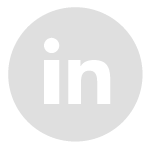In the competitive labour market nowadays, it is not excusable to lose a job opportunity due to making basic errors at the job interview. With unemployment rates around 12% across the European Union, competitively is at its peak as there are far more applicants than vacancies. Therefore when you are finally called for an interview, it is essential to prepare well and research the company in the time leading up to the day as this will be your first personal contact with the company for which you are applying.
It is understandable that you may be nervous –especially if it is your first interview in a long time or even at all. Experts advise on the importance of learning to coexist with nerves so that they do not get in your way to your ultimate goal: getting the job.

The interview is the first step to get you closer to the job you are applying for.
In order to provide you with some useful tips to get ready for your interviews, we have contacted Mundialengua, one of our member companies. Among their services, they specialise in interview search for people interested in carrying out a work placement abroad. We have asked Eleanor Green, Spanish Course and Internship Co-ordinator at Mundialengua, what piece of advice she would offer to avoid stress at this crucial time.
According to her, these are three things you always need to bear in mind:
– Take the time to review common interview questions as you will most likely be asked some of them.
– Review sample answers and advice on how to answer these typical interview questions.
– Research the company as well as the department for which you will are applying. You will be asked about this and it is important you are able to explain your reasons to work there specifically.
However, nerves are not your sole enemy. As you may already know, first impressions do count and choosing well your attire can boost or hinder your chances for the job even before you speak. Funny enough, the mistakes most people are bound to make fall within the common sense territory. A well-groomed appearance is one of them, but as Eleanor Green explains “the errors that most candidates fall into are sadly so basic and so common, such as arriving late. It seems very obvious that the candidate has to arrive on time, but it does not happen frequently”.

As the saying goes “you never get a second chance to make a first impression”.
You would have heard it before, but nonetheless planning ahead before an interview is essential in order to anticipate external factors such as traffic jams or public transport disruptions. Make sure your travel arrangements allow you to arrive 15-20 minutes early to allocate extra time in the event of any unforeseen delay.
If the above seem like taken-for-granted errors, asking about salary too early may kill your chances of getting the post. Despite being one of the main factors when looking for new opportunities, or even the main reason to decide whether or not to accept an offer, you should avoid asking how much you will earn too soon. More often than not, you will be seen as someone only interested in the money, not the job itself. The interviewer will inevitably tell you at some point what salary and benefits come with the job, so include this in your common interview questions list and come with an answer for it.
Strengths and weaknesses will also be brought up. Whilst some people will have no problem describing the things they are good at, it is equally important to have an answer ready for those you can improve or work on. If you reply you do not have any weak points, odds are you will be seen as arrogant. This is a tricky area as you obviously do not want to say something such as you are never punctual. In this regard, our expert Eleanor suggests the following: when thinking about your flaws, try to come up with something that you can turn into a positive thing. “One of my weaknesses is that I talk too much, but I can then turn it into a strength by adding that it means that I am very happy to take part in discussions”, she explains.
Last but not least, do not forget by any means to ask questions. When your interview is drawing to an end, it is highly likely that you will be asked if you have any questions. Remember: “none” is not an acceptable answer. “It is a signal that you are unprepared, uninterested or uncaring about the job”, says Eleanor.

One of the best ways to prepare for an interview is to anticipate questions the interviewer may ask.
What sort of questions can you ask, then? Do your research on the company, the department and the position to identify what areas you would like to know more about. One thing you may want to ask is what qualities are needed in order to do well at the job for which you are applying. This will give you an insight on what your interviewer is actually looking for.
As a last hint remember how important first impressions are. Being well-groomed, having a positive attitude, engaging in small talk (a witty comment, perhaps), keeping eye contact and smiling at the person interviewing you will not certainly decide your fate, but showing that you are making an effort can get you off to a flying start.
We take this opportunity to thank Eleanor Green and Mundialengua for their contribution to this post and we hope the above essentials come in handy in your prospective interviews. Do let us know what other tips you have found useful in the past and how they worked out for you.
PS: Good luck!





